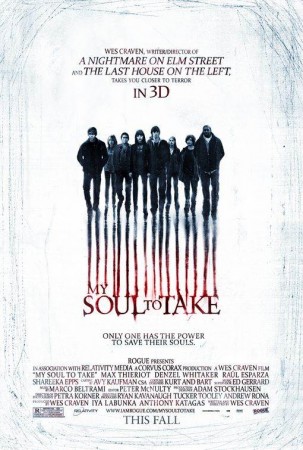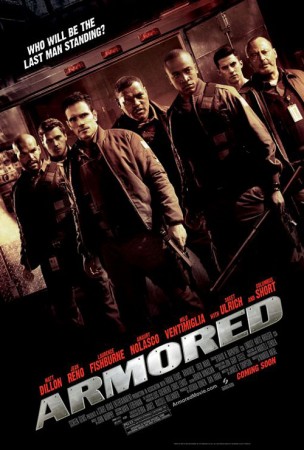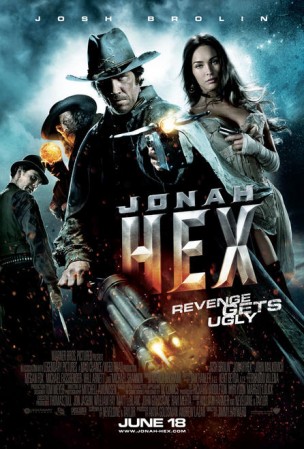The Ticking Script…Building A Bomb
We’d all like to forget the bombs but they’re here to remind us of something important — the problems can almost always be found in the script. It’s easy to blame a bomb on the acting ‘talent’ of Ashton Kutcher or the further contributions to the art of cinema of director Paul W.S. Anderson, but sometimes the horror is in the shooting script or even the original spec. Maybe the screenwriter was to blame, or maybe it was the producer that didn’t recognize the obvious structural issues or the director who only cared about their paycheck, but the point is: the script sucked and there was no way this movie was going to work.
Last summer, I led a reader training course in which we read several scripts that were in development or production in Hollywood. Since then, a few of those movies have been released and I can’t help but say: we saw it comin’!
Wes Craven, the horror legend behind A Nightmare on Elm Street and Scream, recently roared back to the big screen with a big ol’ thud when he delivered unto us My Soul to Take, which was based on his original screenplay named 25/8 (a.k.a. Bug. Note: When a movie goes through three titles, it’s probably not a good sign.).
25/8 opens with a clever, chilling sequence that introduces the killer whose ghost will haunt the rest of the story. But the script quickly devolves into an improbable and cliched mess, and to make matters worse, this killer (who is actually an interesting villain) does not return in physical form until the climax of the script. Other issues include several crass jokes that fall flat, a mythology with huge, gaping logic holes and a boring ending. If pressed to pinpoint the biggest issue, I’d say it lies in the logic of the premise: we’re supposed to believe that in a very small town, seven children were born on the same day that a notorious murderer was killed. Forget the murderer, I never believed that seven kids would be born in that small of a town and 16 years later they’d still all live in the same town and go to the same school! It may sound like a quibble since this is a teen horror movie, but it’s still crucial to establish a convincing logic to the “world” of the movie or you risk losing the Reader/Audience from Page One.
Not surprisingly, the film has all the same problems as the script.
Armored is the case of a strong script that looks to have been hurt by a director who doesn’t understand the elements of story. Lack of stakes, clarity and sympathy for the Protagonist are all issues that weren’t much of a problem for me in James V. Simpson’s script. The film’s not horrible, but it could have been much better. This is a shame because Simpson’s spec script sold and was rushed into production in a fairy-tale scenario for a first-time writer.
Described as “Panic Room in an armored car,” it was definitely the concept that stood out front and center: A group of armored car guards hatches a heist to steal their own car’s shipment, but the rookie in the bunch decides he wants out and is forced to lock himself inside the car…with the money. One of the great joys of reading the script was not knowing about that hook, but it was given away in the ad campaign for the movie. Even so, I never quite connected with the protagonist in the film because his backstory was told, not shown, which was an issue in the script that should have been resolved in development. We really needed to root for the young hero and feel the impact of each beat that upped the stakes, but the film lacked the energy of the script. I also think performances were an issue in the movie; again, not eliciting enough of the emotional connection or tension from us that was needed to execute the concept.
And then…there was Jonah Hex. Poor, misunderstood Jonah Hex. Well, not quite — we could have understood him if the gaping holes in the script were fixed before filming began!
Firstly, of all the Marvel properties, why choose this one? Secondly, who but teenage boys and adult fanboys will root for a badly disfigured, angry killer in a Western Zombie movie? So don’t market it as a date movie! You’ve got a handsome leading man in Josh Brolin…who has ridonkulous facial scars. So, yeah, this is a high-testosterone video game movie, like Predators or Resident Evil.
But although that’s more marketing, it suffers from the same issue as the script: it didn’t quite know what it wanted to be. The blending of the Western and Supernatural genres was never balanced in the Jonah Hex script; there’s a confusing ghost battle, a barn full of unexplained zombies and side-plots that would work better in an action-adventure story than a supernatural thriller. The script was really more a collection of set pieces than a cohesive, driving narrative, which is too bad, because it showed a lot of potential right out of the gate with a tight opening sequence. There’s some really strong description and downright great dialogue in the script by Mark Neveldine & Brian Taylor, but sympathy for our hero is an issue, mainly because we’re confused as to the connection between him and the villain until well into Act Two. They even wait until the climax to reveal how Jonah got his facial scars; wayyy too late.
Structurally, there’s just too much going on without a clear, logical throughline to drive us forward — it’s in there — Jonah seeks revenge on Turnbull for the murder of his wife and child — but Turnbull also has cause for revenge against Jonah so we’re confused about motivation and our rooting interest. Ultimately, I think the writers just needed to keep it simple and focus the story on the revenge engine.
With that said, our group also read a number of scripts that have yet to be released, like The Beaver, Butter and Big Eyes. I look forward to these films and hope they do justice to the strengths of their source material.
Good luck and happy writing!
-Dan




Leave a Reply
Want to join the discussion?Feel free to contribute!